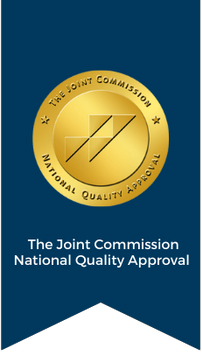Table of Contents
If you or a loved one is struggling with addiction, you may be wondering what the best treatment option is. Inpatient treatment, also known as residential treatment, is a highly effective form of addiction treatment that provides a range of benefits for individuals seeking recovery. In this article, we’ll discuss the benefits of inpatient treatment and how it can help you overcome addiction.
What is Inpatient Treatment?
Inpatient treatment is a form of addiction treatment that requires individuals to stay in a residential facility for a period of time. During this time, they receive round-the-clock care from a team of medical professionals, participate in therapy and counseling sessions, and engage in various other activities designed to promote recovery.
Benefits of 24/7 Support
One of the primary benefits of inpatient treatment is the round-the-clock support provided by medical professionals. This support is essential in helping individuals manage withdrawal symptoms, cope with the emotional challenges of addiction, and stay on track towards recovery.
Structured Environment for Recovery
Inpatient treatment provides a structured environment that is conducive to recovery. This structure helps individuals develop healthy habits, routines, and coping mechanisms that can be carried over into their daily lives after treatment.
Protection from Triggers and Temptations
Inpatient treatment provides a safe and secure environment that protects individuals from triggers and temptations that can lead to relapse. By removing individuals from their normal environment and surroundings, inpatient treatment helps them focus on their recovery without distractions.
Variety of Therapeutic Approaches
Inpatient treatment provides a range of therapeutic approaches that can be tailored to the individual’s specific needs. This includes individual therapy, group therapy, family therapy, and various alternative therapies such as art therapy, music therapy, and yoga.
Medical Supervision and Support
Inpatient treatment provides access to medical supervision and support for individuals who require it. This includes medication management, medical monitoring, and access to specialized care for co-occurring mental health conditions.
Peer Support and Community
Inpatient treatment provides a sense of community and peer support that can be invaluable in the recovery process. Individuals can connect with others who are going through similar experiences, share their struggles, and receive encouragement and support.
Length of Treatment
Inpatient treatment typically lasts between 28 and 90 days, depending on the individual’s needs and the severity of their addiction. This length of treatment allows individuals to fully focus on their recovery without distractions or interruptions.
Preparation for Life After Treatment
Inpatient treatment prepares individuals for life after treatment by providing them with the tools and skills necessary to maintain long-term sobriety. This includes relapse prevention strategies, coping mechanisms, and resources for ongoing support and care.
Conclusion
In conclusion, inpatient treatment provides a range of benefits for individuals seeking recovery from addiction. From 24/7 support and a structured environment to access to a variety of therapeutic approaches and medical supervision, inpatient treatment can help individuals overcome addiction and achieve long-term sobriety.
At California Wellness Center, we understand the challenges of addiction and the importance of effective treatment. Our inpatient treatment program provides a comprehensive approach to addiction treatment that is tailored to the individual’s specific needs. Contact us today to learn more about how we can help you or your loved one on the path to recovery.


